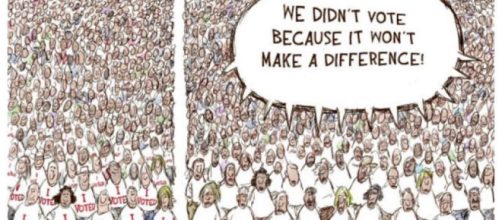The Brexit vote as many claim, is a vote against the establishment but a year previous the country voted in a Conservative government. Who placed harsher austerity measures on the poorest, in a bid to relieve the pressure they put on themselves from policies during the coalition years with the Lib Dems. Current state of british politics has been a long time coming and there is no short-term solution, but what should be done?
But why has British politics hit such an unusual crossroads and why is there such a significant case of voter apathy? This comes down to the Education of politics during school years.
Misuse of education and educating
From an early age, we are told to sit down, listen, and don’t question authority (the teacher) but this doesn’t set children up for becoming a responsible adult, let alone politics. Politics itself is only just really being taught in secondary school and before wasn’t taught much before college. It was and has always been a subject only undertaken by those who developed an interest from outside sources.
Politics has still the elitist image and the education of most MPs and those who work in higher echelons of politics is mostly private. However, there is nothing wrong with private education itself, they offer a very high standard to everyone who attends. But you cannot attend unless you can afford to be sent there, so it is often those who come from a certain type of socio-economic background that attend.
It is often apparent that far too many of those who attend private schools, use politics as a tool to create more wealth for them and their friends, again the notion itself isn’t bad, it is what we all strive for. However, the use of politics as the tool is wrong because its often the poorest in society that take the brunt for this misuse.
Local government vs central government
The teaching of politics focuses too much on national politics and not enough on local government and politics. The current government is cutting local authorities meaning that many councils are cutting vital services such as care, and with Surrey council suddenly abandoning plans for a referendum on a 15% council tax increase, the costs of the cuts are being felt on the poorest.
If you question anyone about the needs of their area, who the councillors are and what they do for the area, most people won’t know. Especially youngsters who plan a career into politics, they will have an idea on how to run the government nationally but locally won’t fully understand the issues. This is backwards and is a possibly a reason we see politics in such state nationwide.
Educating on local government and communities
Top down politics and trickle-down economics is this government’s mantra, the aim for everything to be centralised and the power to remain in Westminster is a status quo preserving tactic. If schooling and education focused on local politics and only added national politics later, you would see an increase in progressive politics, decrease in apathy and create a less elitist environment.
As well as ensure those nationally educated get equal opportunities to develop and grow into politics.
Teaching children about the history of their local government, how it works and what they do for local communities, will only build a further understanding of how politics works. It’ll teach children to not just focus on the big issues but the smaller ones as well. But what is peculiar is that the current government seem to think that if you cut from the bottom, focus funding on big corporations then the national economy will be more secure and stable.
Despite the increase of growth forecasts, due to inflation those forecasts will be subsumed and we will borrow more. But if you focus funding away from central government and local government and communities, putting the emphasis on elected officials engaging the area and building strong local economies this will increase revenue to central government, building a stronger national economy.

